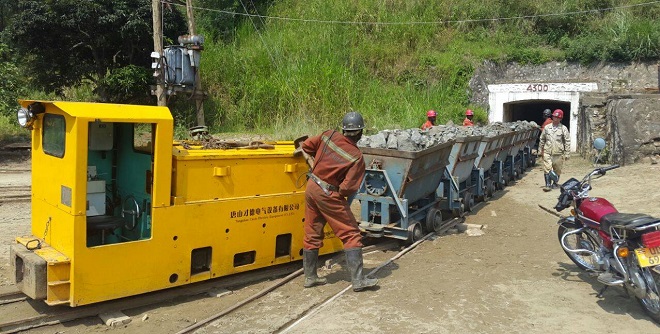
Kampala, Uganda | THE INDEPENDENT | Carnavale Resources Limited has today suspended trading of its shares at the Australian Securities Exchange so that it can make an announcement about tin findings in Uganda. The company said today that its exploration of the Hippo Hill near Kikagati Tin Project in Isingiro district was successful and cassiterite, the tin-bearing mineral, was visible.
“Carnavale Resources Limited is pleased to advise that first-ever drilling and trenching at the Hippo Hill prospect has confirmed the presence of visible cassiterite (tin-bearing mineral),” it said in a statement on the Australian Securities Exchange website. Hippo Hill is located approximately two kilometres west of the main Kikagati Tin Deposit.
The statement said the finding rhymes with the large scale tin prospect defined at the Kikagati Tin Project in Uganda.
“The two large scale tin prospects defined in the data demonstrate the prospective nature of the project and provide excellent opportunity to define large tin resources,” it said. The company added that Hippo Hill is a 1.5-kilometre-long east-west trending target with an interpreted 150-meter-wide perspective corridor.
The nugget cassiterite is observed as crystals up to 20mm long, occurring along the margins of the quartz veins in both drilling and the surface trenching, the company said.
Carnavale suspended its shares to avoid speculation that comes with an announcement of such a finding. It starts trading again on Tuesday but analysts expect a detailed plan of how it intends to progress to the development of the area and resource extraction.
According to geology.com, an online journal on minerals, although cassiterite is the most important ore of tin, it has only been found in minable concentrations in a few locations.
Tin can be used to coat other metals to prevent rust, such as in tin cans, which are made of tin-coated steel. Also, most window glass is made by floating molten glass on the molten tin to produce a flat surface. Tin salts sprayed onto glass are used to produce electrically conductive coatings, according to online reports.
In April 2018, Carnavale announced it had signed an agreement with African Panther Resources Limited, a local Ugandan private company, to acquire 70 per cent of the Kikagati Tin Project (“Project”), located in Uganda on the southern border of Tanzania, Africa.
The Project covers an area of approximately 83 kilometres squared comprising of seven exploration permits and a mining lease which spans extensive surface and shallow underground artisanal workings over at least 2.5 kilometres of strike along the main Nyarubungo and Katanga ridges.
“Importantly there is no prior evidence of the project ever being drill tested,” the company said then.
The findings at Hippo hill confirm the confidence that Carnavale has in the Uganda tin prospects.
******
URN
 The Independent Uganda: You get the Truth we Pay the Price
The Independent Uganda: You get the Truth we Pay the Price


